Recent Blog Posts
7 Common Myths and Misconceptions About Bankruptcy
 If you are struggling with debt, you may be looking at different options for getting your finances back on track, including filing for bankruptcy. However, you may have heard some things about bankruptcy that make you hesitant to file. It is important to get the facts before making any decisions about your financial future. There are a lot of myths and misconceptions out there about bankruptcy—and they deter many people from taking action when necessary. Here are some of the most common myths about bankruptcy, debunked:
If you are struggling with debt, you may be looking at different options for getting your finances back on track, including filing for bankruptcy. However, you may have heard some things about bankruptcy that make you hesitant to file. It is important to get the facts before making any decisions about your financial future. There are a lot of myths and misconceptions out there about bankruptcy—and they deter many people from taking action when necessary. Here are some of the most common myths about bankruptcy, debunked:
-
Myth #1: Bankruptcy Will Ruin Your Credit Score
Truth: While a bankruptcy filing will stay on your credit report for seven to 10 years, this does not mean that your credit will be completely ruined. In fact, many people who file for bankruptcy see their credit scores increase within two years after their debts are discharged. If you are careful about using credit and make an effort to pay bills on time after your bankruptcy, you will most likely see your score continue to rise.
How Will Filing for Bankruptcy Affect the Collection of Debts?
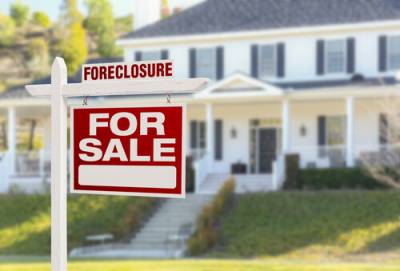 For people who are considering bankruptcy, large debts have affected their lives and their finances in many ways. The requirement to make payments toward multiple debts each month may have become impossible, especially if a family is experiencing financial difficulties due to the loss of a job, unexpected expenses, or other issues. To make matters worse, late or missed payments may have led creditors to begin taking action to collect debts. People in these situations often experience harassment from creditors, which may include regular phone calls at home or at work, as well as threats to repossess property or even claims that a person could face criminal consequences due to failure to repay what is owed.
For people who are considering bankruptcy, large debts have affected their lives and their finances in many ways. The requirement to make payments toward multiple debts each month may have become impossible, especially if a family is experiencing financial difficulties due to the loss of a job, unexpected expenses, or other issues. To make matters worse, late or missed payments may have led creditors to begin taking action to collect debts. People in these situations often experience harassment from creditors, which may include regular phone calls at home or at work, as well as threats to repossess property or even claims that a person could face criminal consequences due to failure to repay what is owed.
One of the key benefits of filing for bankruptcy is the fact that doing so will put an "automatic stay" in place that will require creditors to stop attempting to collect debts. The automatic stay is a court order that will force creditors to cease any debt collection actions while the bankruptcy case is ongoing. For those who are thinking of filing for bankruptcy, it is important to understand how the automatic stay works and what it means for creditors.
What Is the Means Test in Texas Bankruptcy Cases?
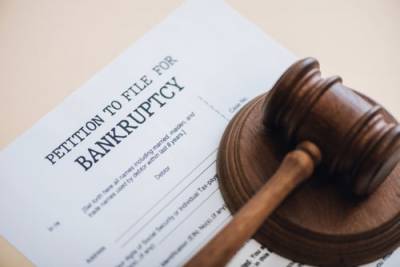 Debt can be a problem for many people, especially those who have suffered setbacks that have affected their income and financial resources, such as a serious illness that has limited their ability to work. Fortunately, bankruptcy can be an option for eliminating debts. When you file for bankruptcy in Texas, your case will be assigned to one of two chapters—Chapter 7 or Chapter 13. In order to qualify for Chapter 7, which will allow for the elimination of most debts within a few months after filing, you must pass the means test, which is a way of determining whether your income is low enough to allow you to file for this type of bankruptcy.
Debt can be a problem for many people, especially those who have suffered setbacks that have affected their income and financial resources, such as a serious illness that has limited their ability to work. Fortunately, bankruptcy can be an option for eliminating debts. When you file for bankruptcy in Texas, your case will be assigned to one of two chapters—Chapter 7 or Chapter 13. In order to qualify for Chapter 7, which will allow for the elimination of most debts within a few months after filing, you must pass the means test, which is a way of determining whether your income is low enough to allow you to file for this type of bankruptcy.
How Does the Means Test Work?
The means test is actually quite simple. First, your income is calculated by taking your total household income from the past six months and averaging it out to determine your monthly income. This number will be compared to the median income earned by people in Texas, and this amount will be based on the size of your household. For Texas bankruptcy cases filed after May 15, 2022, the median income for a single person is $55,441, or $4,620 per month. For a married couple, the median income is $74,636, and higher median incomes will apply if a person or couple has children or if there are others who live in their household. If your income is below the median for your family size, you automatically qualify for Chapter 7 bankruptcy.
Will I Lose All My Assets When Filing for Bankruptcy?
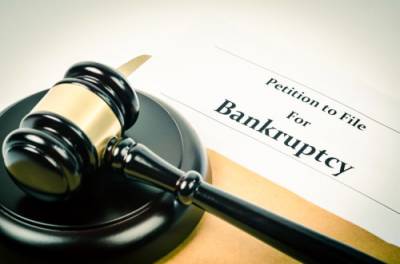 While debt is a significant concern for many people, and bankruptcy is an option that will allow many of these debts to be eliminated, this form of debt relief is often seen as a last resort. This is often because people are concerned about losing all of their assets, including their home or car, when they file for bankruptcy. However, this is not necessarily true, and in fact, many people can complete a "no-asset" bankruptcy in which all of the assets they own will be protected by exemptions. By understanding the exemptions that apply in your situation, you can determine whether you will be able to file for bankruptcy and keep as much of your property as possible.
While debt is a significant concern for many people, and bankruptcy is an option that will allow many of these debts to be eliminated, this form of debt relief is often seen as a last resort. This is often because people are concerned about losing all of their assets, including their home or car, when they file for bankruptcy. However, this is not necessarily true, and in fact, many people can complete a "no-asset" bankruptcy in which all of the assets they own will be protected by exemptions. By understanding the exemptions that apply in your situation, you can determine whether you will be able to file for bankruptcy and keep as much of your property as possible.
Bankruptcy Exemptions in Texas
Generally, concerns about the loss of property will only apply in Chapter 7 bankruptcy cases. In this type of bankruptcy, the bankruptcy trustee will liquidate (sell) the debtor's nonexempt assets and use the proceeds to pay creditors. However, many people who file for Chapter 7 bankruptcy do not lose any property because they are able to protect all of their assets using the bankruptcy exemptions that are available in their state.
How to Rebuild Your Credit After Bankruptcy
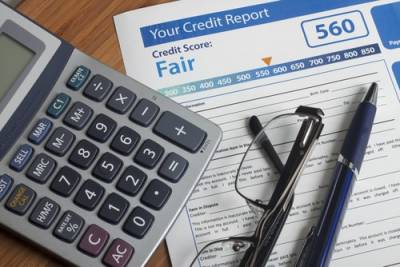 Debt can be a serious issue that affects you and your family, and financial problems can have a significant impact on your credit. Missed payments can lower your credit score. If bankruptcy becomes necessary to wipe out debts and provide your family with a fresh financial start, this will not only cause your credit score to decrease further, but the bankruptcy will remain on your credit report for several years. A low credit score and a previous bankruptcy filing can affect you in multiple ways, including by making creditors less likely to grant credit or approve you for loans that will let you purchase a home or vehicle. Fortunately, there are things that can be done to increase your credit score after you complete the bankruptcy process.
Debt can be a serious issue that affects you and your family, and financial problems can have a significant impact on your credit. Missed payments can lower your credit score. If bankruptcy becomes necessary to wipe out debts and provide your family with a fresh financial start, this will not only cause your credit score to decrease further, but the bankruptcy will remain on your credit report for several years. A low credit score and a previous bankruptcy filing can affect you in multiple ways, including by making creditors less likely to grant credit or approve you for loans that will let you purchase a home or vehicle. Fortunately, there are things that can be done to increase your credit score after you complete the bankruptcy process.
Methods of Increasing Your Credit Score
Rebuilding credit after bankruptcy requires time and effort, but it can be done. The first step is to make sure all debts included in the bankruptcy have been discharged. You may want to check your credit report and make sure all information is accurate and up to date. Once this has been confirmed, the next step is to begin re-establishing credit by demonstrating financial responsibility. Some methods of doing so include:
How to Decide Between Chapter 7 and Chapter 13 Bankruptcy
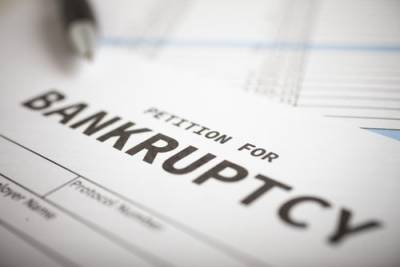 Do you have significant debts that you are struggling to repay? Are you constantly dealing with calls from creditors? Are you worried about losing your home or other property? These issues affect many Americans, and debt can become unmanageable for multiple reasons, including financial factors that are out of your control, such as losing your job or suffering an illness that led to large medical bills. In these situations, it is important to remember that you are not alone, and you may be able to use our country's bankruptcy laws to receive relief from your debts. However, there are typically two options when filing for bankruptcy -- Chapter 7 and Chapter 13 -- and understanding how to choose between them is not always easy.
Do you have significant debts that you are struggling to repay? Are you constantly dealing with calls from creditors? Are you worried about losing your home or other property? These issues affect many Americans, and debt can become unmanageable for multiple reasons, including financial factors that are out of your control, such as losing your job or suffering an illness that led to large medical bills. In these situations, it is important to remember that you are not alone, and you may be able to use our country's bankruptcy laws to receive relief from your debts. However, there are typically two options when filing for bankruptcy -- Chapter 7 and Chapter 13 -- and understanding how to choose between them is not always easy.
Weighing Your Bankruptcy Options
The primary difference between Chapter 7 and Chapter 13 bankruptcy is that Chapter 7 bankruptcy results in the liquidation of your assets, while Chapter 13 bankruptcy sets up a repayment plan for your debts. A Chapter 7 case can usually be completed fairly quickly, and it will allow multiple types of debts to be discharged after any non-exempt assets you own are seized and sold to pay off some of what you owe. A Chapter 13 case is often more complicated, and it will require you to make monthly payments for several years, although you will not be required to turn over any property.
What Types of Debts Cannot Be Discharged?
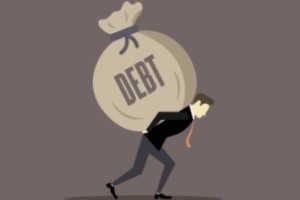 People who are seeking relief from debt have the option to declare bankruptcy. Depending on their overall financial situation, most individuals will file either Chapter 7 or Chapter 13 bankruptcies to stop debt collection and have their debts discharged. However, there are certain types of debts that cannot be discharged through the bankruptcy process, known as non-dischargeable debts. If you are overwhelmed with debt and considering filing for bankruptcy, even if the majority of your debt appears to be non-dischargeable, an experienced attorney can help you explore your options.
People who are seeking relief from debt have the option to declare bankruptcy. Depending on their overall financial situation, most individuals will file either Chapter 7 or Chapter 13 bankruptcies to stop debt collection and have their debts discharged. However, there are certain types of debts that cannot be discharged through the bankruptcy process, known as non-dischargeable debts. If you are overwhelmed with debt and considering filing for bankruptcy, even if the majority of your debt appears to be non-dischargeable, an experienced attorney can help you explore your options.
Texas Bankruptcy Non-Dischargeable Debts
There are several types of non-dischargeable debts, or debts that cannot be wiped out when you file for bankruptcy. These debts include:
-
Student loan debt – Student loan debt is often a source of significant debt. Loans which are government-funded or guaranteed educational loans are usually non-dischargeable. However, in cases where the debtor can show that repayment would cause them undue hardship, they may be dischargeable.
What happens to my house and car in bankruptcy?
One of the most common questions attorneys at Acker Warren, P.C. are asked by potential client’s is, what happens to my house and car in bankruptcy?
The short answer to this question is that you almost always may keep and continue to pay for you home and car. However, it depends on a multitude of factors, for instance, what state you live in, if you are current on the payments, is it your only house or vehicle, what other property do you own, etc.?
To more thoroughly understand what happens to a home or vehicle in bankruptcy an explanation as to the different types of debts, the different types of assets, and the different chapters of bankruptcy is necessary.
Secured and unsecured debts
Secured debts – These are debts where collateral is given for the loan. In other words, a creditor can come and take back something from you if you do not pay for it. The most common secured debts are those for a home or a vehicle, where the home or vehicle that was purchased serves as the collateral for repayment of the loan.
Why are debt collectors harassing me?
A Debt collector’s purpose is to recover money owed on delinquent accounts. Sometimes the Debt collector has been hired by a creditor to try to recover the delinquent debt and other times the Debt collector has purchased the debt from the original creditor. Some examples of why debt collectors may contact you are unpaid medical bills, delinquent credit card debt, delinquent phone/ utility bills, delinquent car loan payments, deficiency balances on repossessed or foreclosed property, back taxes, etc.
However, just because a Debtor is delinquent on a debt or account, this does not mean that a Creditor or Debt Collector has free reign to try to collect the debt by any means they see fit. The Fair Debt Collection Practices Act (FDCPA) is a law that sets out the parameters that a Creditor/ Debt Collector is allowed to attempt to collect on a delinquent debt. Harassment and its definitions are set out under the law. If a creditor violates the FDCPA a Debtor has the right to sue for damages created by the violations of the FDCPA.
Bankruptcy and Your Credit Report: How Long Will It Stay There?
When you file for bankruptcy under Chapter 7 or Chapter 13 it can stay on your credit report for up to 10 years. Luckily for most of our clients, the bankruptcy being reported on their credit report isn’t too damaging. Most of our clients actually see their score improve, because their debt-to-income ratio instantly improves, and because creditors are required to remove any negative reporting from the credit report. As a result, getting a car, loan, or credit card is typically not difficult.
Additionally, there are actions you can take on top of filing bankruptcy in order to hasten the process of improving your credit score. This post details some strategies to achieve that goal.
Chapter 7
You can discharge most, if not all, of your debts after filing for Chapter 7 bankruptcy. This means that a lender cannot collect a discharged debt, and you’re no longer responsible for repaying it.









